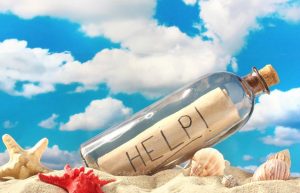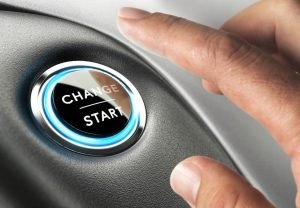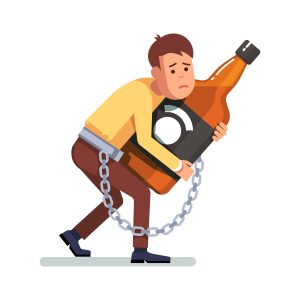How do you move from lust to love?
Lust and love are two words that are opposites, but nevertheless, the confusion between them is huge. It’s not surprising. After all, the same action can be done with love or with lust. But the confusion doesn’t end there. The main confusion between lust and love is not about what the modern world calls “making love,” meaning sex, but the fact that the search for true love and the pursuit of lust both come from exactly the same place: the soul of man.
Erich Fromm, was a famous psychologist of the humanistic school of psychology. At the center of his theory is the motivation of each person to satisfy his psychological needs, many of which stem from the frustration of loneliness. Fromm believed that this solitude has greatly increased in our time, as personal freedom has increased, although personal connections between people has been disintegrating. Most people have moved from small, close-knit communities to large cities, where many feel alienated. He called this “existentialism.”
So how are we supposed to deal with this existential loneliness? Most of us aren’t coping so well. According to Fromm, humans have created three ways of coping, but none of them have provided a satisfactory solution, so they don’t really solve the problem. First, Fromm described the escape to work and productivity. Next is the escape to conformity, which is the loss of individuality within a group. Finally, there is the escape to drugs, sex and other experiences of this kind.
What interests us the most is the third way of attempted escape to existential isolation. Unfortunately, as everyone here knows, it always fails. It may provide a momentary response, but it doesn’t last in the long term. When we experience lust, we feel the ecstatic experience of disconnecting from our reality, and connecting to or disappearing into something big and intoxicating. But when the experience is over, what we are left with is the old existential isolation, plus the pain of the new emptiness.
After rejecting these three options, Fromm explains that in his opinion, the only way to satisfy a human being is true love. In Fromm’s opinion, true love is a skill that anyone can develop. It’s not a gift that some people have but others don’t. He argues that one can learn how to love, just like one can learn any subject.
If we translate this beautiful theory into concepts with which addicts are familiar, we can safely say that the motive behind the disease and the motive for recovery is exactly the same. We feel empty and lonely, but want to feel belonging and connection. For years we’ve tried every possible way to cope. When we fail, it pushes us to escape to lust. In some cases, it makes us drown ourselves in work or escape to a group or community involvement. But it doesn’t work, and we continue to suffer. In the end, we are faced with the only possible successful solution: to love.
The problem is that when we try to love, we discover that we don’t know how. We don’t know how to love ourselves, we don’t know how to love God, we don’t know how to love others, and we don’t even know how to love the woman we married. This is exactly where the Steps, the group members and the sponsor come into play. They are here to teach us the skill called “love.” They help us to learn that love is not sex (although it can be part of love), but rather caring, giving and receiving unconditionally.
 Sometimes we look into the future and we get overwhelmed. We tried so many times to stop and the odds are against us. We get filled with self-doubt and lose our confidence to succeed. Many times we think: “what’s the point of getting through this day? In any case tomorrow I will probably fall, and if not tomorrow then the next day. Why should I bother to try?”
Sometimes we look into the future and we get overwhelmed. We tried so many times to stop and the odds are against us. We get filled with self-doubt and lose our confidence to succeed. Many times we think: “what’s the point of getting through this day? In any case tomorrow I will probably fall, and if not tomorrow then the next day. Why should I bother to try?” Our acting-out with pornography can end up becoming the very source of our healing.
Our acting-out with pornography can end up becoming the very source of our healing. It’s obvious that one of the strongest triggers that make us turn to porn is a sense of inner emptiness. A hard day at work, a strong sense of meaninglessness, a desire to escape to a place of comfort, and there you have all the conditions needed to make us dive into a world of fantasy, deep into obsessive use of porn, where we can find a moment of peace. The problem is, of course, that this is a false peace, with a very short expiration date.
It’s obvious that one of the strongest triggers that make us turn to porn is a sense of inner emptiness. A hard day at work, a strong sense of meaninglessness, a desire to escape to a place of comfort, and there you have all the conditions needed to make us dive into a world of fantasy, deep into obsessive use of porn, where we can find a moment of peace. The problem is, of course, that this is a false peace, with a very short expiration date. A member who is sober in the 12-Step fellowship for many years, writes to a fellow struggler:
A member who is sober in the 12-Step fellowship for many years, writes to a fellow struggler: Someone wrote this week:
Someone wrote this week: “I recently fell after a clean period of 40 days, and it hurts. How can I finally beat this thing so that I never come back to it?” Jamie K., Brooklyn
“I recently fell after a clean period of 40 days, and it hurts. How can I finally beat this thing so that I never come back to it?” Jamie K., Brooklyn There is an amazing section at the end of the Big Book (the foundational book of the 12-Step Program), where an alcoholic, who had been through a lot in life, writes that acceptance was the solution to all his problems. He claims that acceptance was the key to his sobriety, and that it totally changed his relationship with life, his spouse and with God:
There is an amazing section at the end of the Big Book (the foundational book of the 12-Step Program), where an alcoholic, who had been through a lot in life, writes that acceptance was the solution to all his problems. He claims that acceptance was the key to his sobriety, and that it totally changed his relationship with life, his spouse and with God: In Alcoholics Anonymous, they put a spin on the words “Pour me another drink”. They have a saying — “Poor me, poor me,… pour me another drink.”
In Alcoholics Anonymous, they put a spin on the words “Pour me another drink”. They have a saying — “Poor me, poor me,… pour me another drink.”

